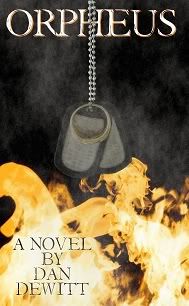This week I'm sharing with you five important lessons I've learned in my first three months or so as a Twitter user promoting my crime fiction novel, Blood Passage. I began with Lesson #5, where I learned that Twitter has a lot of marketing potential, and followed with Lesson #4, in which I suggested that Twitter also has a lot of research potential.
Now it's time for Lesson #3: Twitter is a lot more easy to use than Facebook.
My mother always told me that if I don't have anything nice to say I should just keep my mouth shut, and I've tried to follow that rule not only in my everyday life but also in my online presence. It's been a strain sometimes not to publish that negative post about zombie legacy publishers or snooty agents or disinterested publicists. But I've resisted the temptation.
Until now.
As Popeye used to say, "That's all I can stand, I can't stands it no more." I struggle with Facebook. I don't like it. Oh, I understand its value as a social medium and a marketing tool. Many of the indie authors I researched before making the decision to go independent myself have successfully used Facebook to publicize their books and engage their audiences. I understand that very well.
Perhaps it's an individual thing. Some of us get Facebook and some of us don't. To me, it's a very user-unfriendly application. I have absolutely no idea how to navigate around in it. Whenever I try to do something new, it doesn’t work and I end up in a window I didn’t expect. I have a personal site when I only wanted a fan page. I created a fan page and have no idea how to make certain that people come to the fan page rather than the personal thing. I get notifications that someone has posted a message for me and I have no idea where to find the message within Facebook. Don't get me wrong; I'm computer literate. At one point in my career with Canada Customs I designed computer-based training using scripting programs no one else in the department at the time knew how to use. It's just that Facebook is an unfriendly environment for a casual user such as myself. Perhaps if I lived on it, as my son does, it would be a different matter. But I don't, and it isn't.
Twitter, on the other hand, is a snap. Sure, it occasionally gets a hairball and I have to close it and reopen it. It has a few other flaws that are well-known to everyone, but it was simple to learn, simple to use, simple to understand, simple simple simple. I like simple. Simple works for me. I log on, do my thing, and move on to something else. Love it.
Plus there are a whole whack of apps that can further simplify my Twitter experience. Want to know who's not following me back? I can use "Friend or Follow." Want to shorten those lengthy links to accommodate my full message within the 140-character limit? I can use bit.ly or a similar app. I suppose there are also a lot of Facebook apps I could use, but frankly, do I care? I'd probably get lost in the Facebook jungle trying to find and use them. Bit.ly? It took me about two minutes to find it in a Google search, register and start using it. Simple.
The bottom line? If we take this lesson as a glass half-full thing (Twitter) instead of a glass half-empty thing (@#$%^ Facebook), I've learned that Twitter is a very user-friendly application for me that can do what I need it to do with little effort. Hoorah for Twitter.
Have you noticed differences between Twitter and Facebook in terms of useability and utility? Let us know about your experiences.
Tomorrow: Lesson #2: It's Better to Spend the Time on Twitter Than to Auto-Tweet






